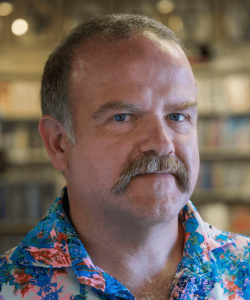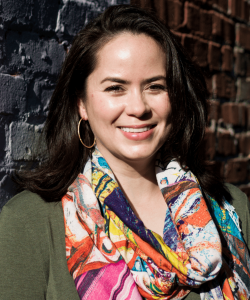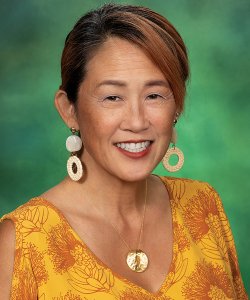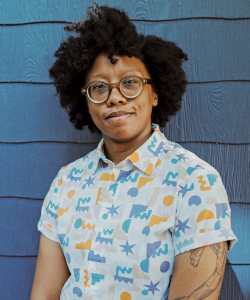Ten Questions for Raquel Gutiérrez

“You have to learn to write when you don’t feel like it.” —Raquel Gutiérrez, author of Southwest Reconstruction
Jump to navigation Skip to content
Articles from Poet & Writers Magazine include material from the print edition plus exclusive online-only material.

“You have to learn to write when you don’t feel like it.” —Raquel Gutiérrez, author of Southwest Reconstruction

The author of Ocean of Clouds (Knopf, 2025) considers the lineage of his own loping lines and encourages poets to try them.

“Art is following your soul’s demand.” —Juhea Kim, author of A Love Story From the End of the World

The author of Ocean of Clouds (Knopf, 2025) considers the benefits of planning elements of a poem before its composition.

“It can take days, months, years for me to know when notes pass into the arena of poem or story.” —Devon Walker Figueroa, author of Lazarus Species

The author of Ocean of Clouds (Knopf, 2025) reflects on the practice of poetry as one of both composition and listening.

“I’ve learned to be most interested in enjoying the process of making something emotionally true and honest.” —Ashani Surya, author of Ravishing

“I think the creative process is unboundaried.” —Sarah Hall, author of Helm

The author of Bright Fear (Faber & Faber, 2023) and Flèche (Faber & Faber, 2019) explores what it means to write a self that “is in a perpetual state of becoming.”

“How can we reach a higher truth in storytelling and art?” —Brandon Hobson, author of The Devil Is a Southpaw

The author of Bright Fear (Faber & Faber, 2023) and Flèche (Faber & Faber, 2019) considers what it means to estrange a familiar motif in one’s writing.

“At a certain point, you just have to make that shift into the difficulty head-on. You have to hit it.” —Emily Wilson, author of Burnt Mountain

The author of Bright Fear (Faber & Faber, 2023) and Flèche(Faber & Faber, 2019) reflects on how queer traces in literature can open doorways of possibility.

Writers looking to place their prose and poetry chapbooks will find committed advocates and caring editors at indie publishers including Cooper Dillon Books and Black Lawrence Press.

The editor of Diagram highlights five literary magazines with unexpected ambitions, including a celebration of sentence-long narratives and a journal dedicated to revenge.

The author of American Harvest: God, Country, and Farming in the Heartland identifies exemplary journals publishing nonfiction, where editors seek “a novel point of view, a voice willing to confront the true uncharted territory of the imagination.”

The author of the collection What We Fed to the Manticore highlights homes for short fiction that embrace new talent, spark dynamic conversations, and live the values of inclusion and representation.

The author of How to Submit: Getting Your Writing Published With Literary Magazines and Small Presses names top journals offering visibility, community, and meaningful pay to poets.

An author recommends strategies for organizing book events that give audience members a chance to connect with one another, opening up conversations rather than defaulting to the formal delivery of a static author reading.

A novelist lays out the reasons why writers should resist, but not necessarily reject, artificial intelligence and advocate for AI tools to be used to augment creativity rather than replace our humanity.

Since 2016, Poets & Writers Magazine has showcased authors who have made their literary debuts after the age of fifty in our annual 5 Over 50 series. These are the fifty writers and books that have been celebrated in our pages.

Essays by debut authors Jennifer Eli Bowen, Princess Joy L. Perry, Yael Valencia Aldana, Vishwas R. Gaitonde, and Lauren K. Watel as well as excerpts from their books.

In her latest poetry collection, The Natural Order of Things, out now from Graywolf Press, Donika Kelly celebrates joy as a simple yet radical means of resisting despair.

An agent at Trellis Literary Management offers nuanced advice to writers on approaching literary magazine publication, including how much these credits matter in a query letter and which writers benefit most from such exposure.